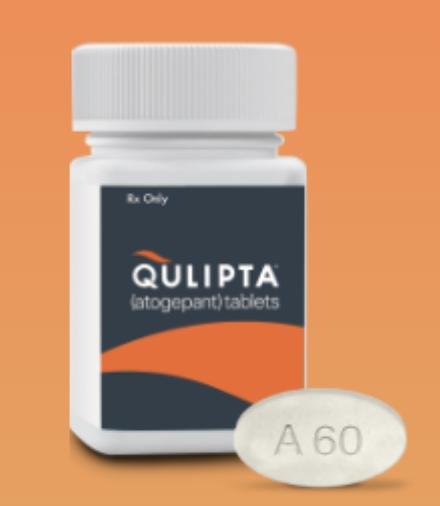Atogepant Disease Interactions
There are 2 disease interactions with atogepant.
Atogepant (applies to atogepant) hepatic impairment
Major Potential Hazard, Moderate plausibility. Applicable conditions: Liver Disease
Atogepant should be avoided in patients with severe hepatic impairment. For patients with mild (Child-Pugh Class A), moderate (Child-Pugh Class B), or severe hepatic impairment (Child-Pugh Class C), total atogepant exposure increased by 24%, 15%, and 38%, respectively. During clinical trials, cases of elevated transaminase levels to over 3 times the upper limit of normal were temporally associated with atogepant use; these cases were asymptomatic and resolved within 8 weeks of discontinuation.
Atogepant (applies to atogepant) renal dysfunction
Moderate Potential Hazard, Moderate plausibility.
Atogepant for the treatment of chronic migraine should be avoided in patients with severe renal dysfunction. No dose adjustment is needed in patients with mild or moderate renal dysfunction.
Switch to professional interaction data
Atogepant drug interactions
There are 208 drug interactions with atogepant.
Atogepant alcohol/food interactions
There is 1 alcohol/food interaction with atogepant.
More about atogepant
- atogepant consumer information
- Check interactions
- Compare alternatives
- Reviews (212)
- Side effects
- Dosage information
- During pregnancy
- Drug class: CGRP inhibitors
- Breastfeeding
- En español
Related treatment guides
Drug Interaction Classification
| Highly clinically significant. Avoid combinations; the risk of the interaction outweighs the benefit. | |
| Moderately clinically significant. Usually avoid combinations; use it only under special circumstances. | |
| Minimally clinically significant. Minimize risk; assess risk and consider an alternative drug, take steps to circumvent the interaction risk and/or institute a monitoring plan. | |
| No interaction information available. |
See also:
Further information
Always consult your healthcare provider to ensure the information displayed on this page applies to your personal circumstances.


